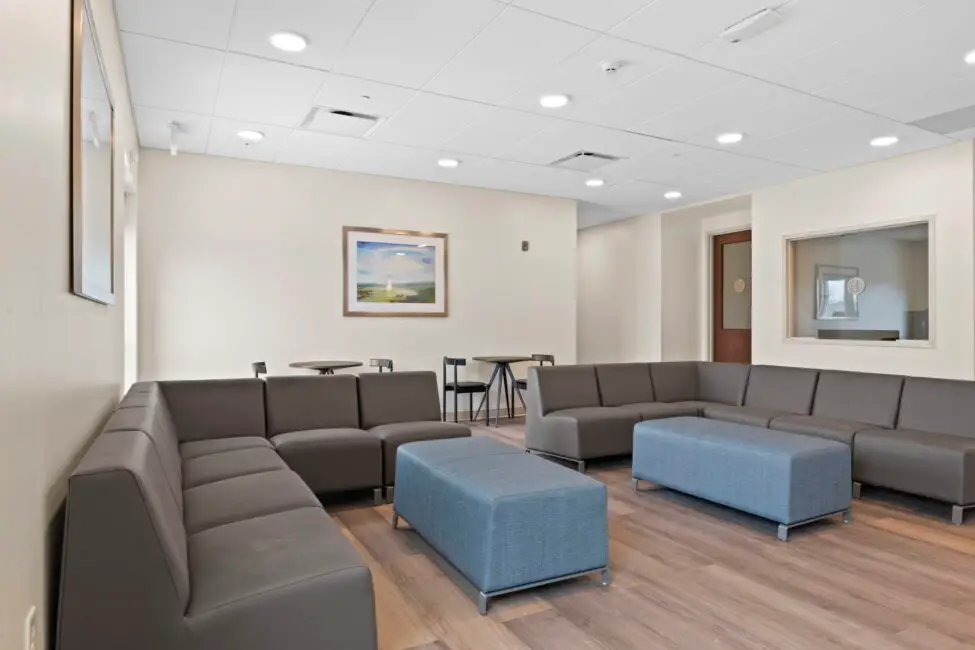Indianapolis inpatient rehab can help you develop a strong foundation in recovery, away from the stressors and triggers that exist in daily life at home.
Your insurance may cover the cost of inpatient care at The Recovery Village Indianapolis.
Inpatient rehab, also known as residential treatment, offers a highly structured and intensive approach to addiction treatment. Clients reside at our state-of-the-art Indianapolis facility, away from drugs or alcohol, and receive evidence-based care from licensed professionals throughout the day. Our inpatient rehab program enables you to concentrate fully on your recovery, equipping you with the necessary tools to maintain your recovery.

If any of the following apply to you, attending inpatient rehab could be life-changing. We’re here to help.
If any of these items apply to you, please call us now. A Recovery Advocate is standing by to discuss the right treatment plan for you.
Our inpatient rehab program at The Recovery Village Indianapolis equips you with the tools, self-awareness, and support essential for a substance-free life.
Throughout your inpatient stay at our Indianapolis facility, our addiction specialists will guide you through a comprehensive treatment schedule tailored to address your symptoms and the underlying causes of your addiction. This includes addressing co-occurring mental health disorders and providing medication-assisted treatment when deemed medically appropriate.

Addiction is not a moral failing; it’s a chronic, treatable disease. Our patient-first approach and expert team are dedicated to providing you or your loved one with the medical support, confidence, and tools necessary for a better life in recovery.
lives we’ve impacted
professional credentials
Total beds
specialized treatment options
The duration of rehab varies based on the individual’s behavioral health needs and substance use history. Typically, clients finish their medical detox and inpatient rehab programs within 30 to 45 days.
Completing the full treatment plan is strongly encouraged as leaving treatment prematurely often increases the risk of relapse and overdose. However, clients retain the right to leave treatment, even against medical advice, at any time, provided they do not pose a threat to themselves or others.
Absolutely, many individuals have initiated their lifelong journey of recovery through inpatient addiction treatment. Although there is no “cure” for substance use disorder, recovery is indeed achievable. We gauge the success of inpatient rehabilitation by improvements in our clients’ physical and mental health, employment or educational status, duration of relapse, safety and legal status, and relationships with loved ones.
Insurance may cover some or all of the costs associated with inpatient rehab. For those without insurance, The Recovery Village Indianapolis can collaborate with clients to establish a private pay option.
Attending inpatient treatment will mean leaving your job, at least temporarily, but there are several laws in place that can help protect employees when they attend inpatient rehab.
Addressing your addiction is crucial for creating a brighter future for your children. Although there are no guarantees regarding child custody, completing rehab to mitigate the adverse effects of addiction on your life could increase your chances of retaining custody.
VIDEO
VIDEO
VIDEO
We’re available to answer any questions, confirm your insurance benefits and schedule individualized treatment that works for you.

The Recovery Village Indianapolis offers comprehensive addiction treatment for drug and alcohol addictions and co-occurring mental health conditions.
Medical Disclaimer: The Recovery Village aims to improve the quality of life for people struggling with a substance use or mental health disorder with fact-based content about the nature of behavioral health conditions, treatment options and their related outcomes. We publish material that is researched, cited, edited and reviewed by licensed medical professionals. The information we provide is not intended to be a substitute for professional medical advice, diagnosis or treatment. It should not be used in place of the advice of your physician or other qualified healthcare provider.
Now Accepting Medicaid